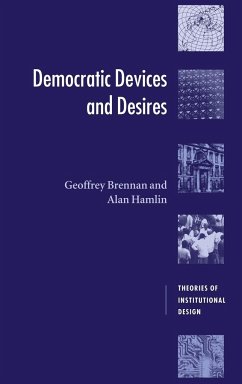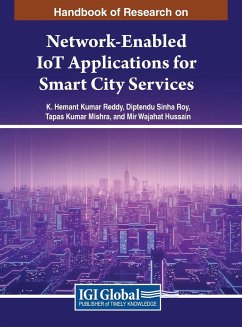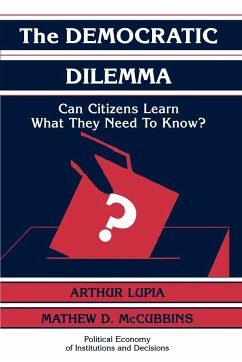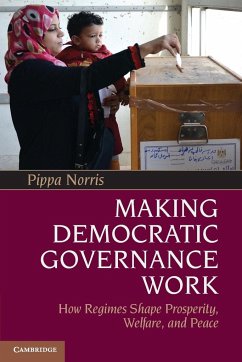
Democratic Devices and Desires
Versandkostenfrei!
Versandfertig in 1-2 Wochen
90,99 €
inkl. MwSt.
Weitere Ausgaben:

PAYBACK Punkte
45 °P sammeln!
This book offers an account of key features of modern representative democracy. Working from the rational actor tradition, it builds a middle ground between orthodox political theory and the economic analysis of politics. Standard economic models of politics emphasise the design of the institutional devices of democracy as operated by essentially self-interested individuals. This book departs from that model by focusing on democratic desires alongside democratic devices, stressing that important aspects of democracy depend on the motivation of democrats and the interplay between devices and de...
This book offers an account of key features of modern representative democracy. Working from the rational actor tradition, it builds a middle ground between orthodox political theory and the economic analysis of politics. Standard economic models of politics emphasise the design of the institutional devices of democracy as operated by essentially self-interested individuals. This book departs from that model by focusing on democratic desires alongside democratic devices, stressing that important aspects of democracy depend on the motivation of democrats and the interplay between devices and desires. Individuals are taken to be not only rational, but also somewhat moral. The authors argue that this approach provides access to aspects of the debate on democratic institutions that are beyond the narrowly economic model. They apply their analysis to voting, elections, representation, political departments and the separation and division of powers, providing a wide-ranging discussion of the design of democratic institutions.














